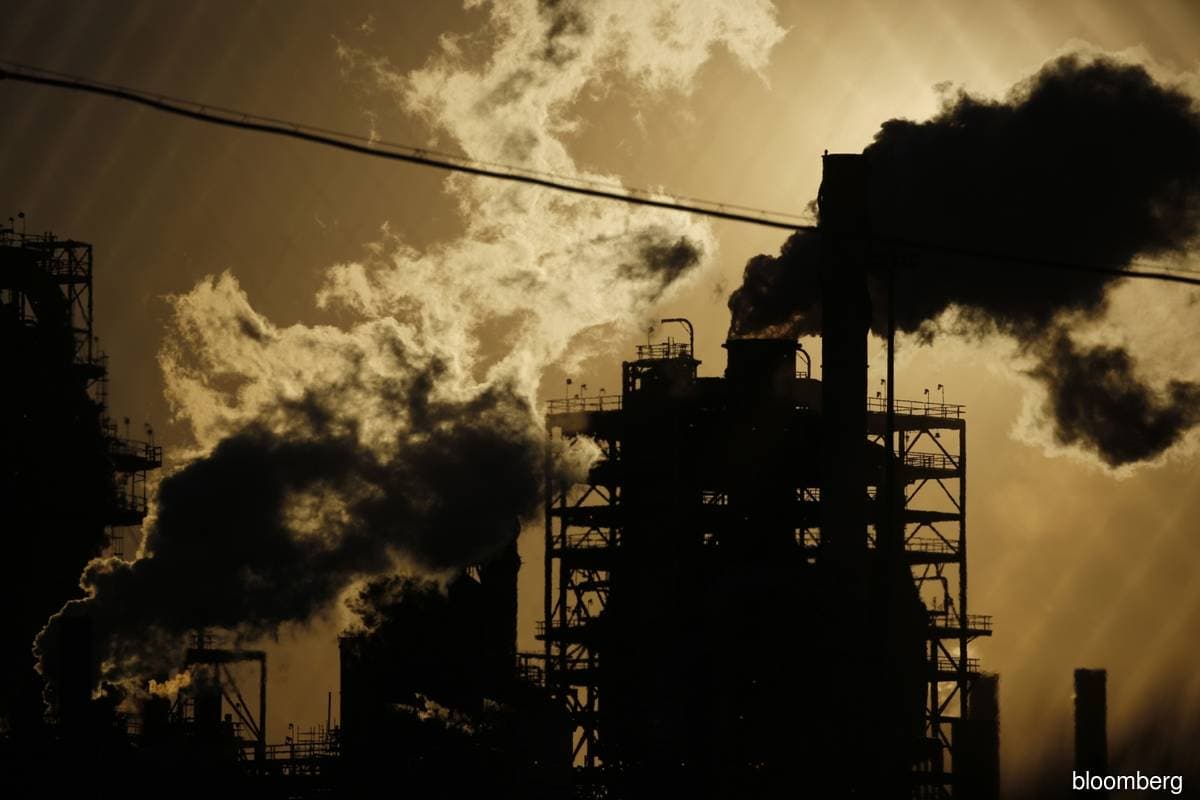
KUALA LUMPUR (Dec 16): Pressure from anti-fossil fuel activists on governments to stop investment in oil and gas fields will be an obstacle.
In a report titled “'Global upstream fiscal systems: 5 things to look for in 2022” released on Wednesday (Dec 15), energy research and consultancy Wood Mackenzie (WoodMac) said anything that is perceived as financial support to oil companies is regarded by them as a fossil fuel subsidy, whether it is or not.
It said any fiscal incentives that promote decarbonisation will be resisted if they prolong oil and gas production, even with lower emissions.
WoodMac said any renewable power supply costs of oil and gas projects will be recoverable from project revenue.
But it said these relatively small projects could be expanded, so that additional power is generated and fed into the grid.
If the local market is unable to bear the full cost of the new renewable power, the capital expenditure of the additional facilities could also be included in the cost pool to be recovered from oil and gas revenue.
This would greatly reduce the break-even cost of supplying the renewable power to the local market, it said.
Opposition
WoodMac said there will be significant opposition to such incentives for oil producers from activists, pure renewable energy companies and others.
“Therefore, we would be surprised if any project actually goes ahead under such a scheme in 2022.
“However, wherever there is close alignment of renewable energy objectives between producers and governments, it should be included in discussions of how to expand the sector at the most affordable price for consumers,” it said.
Licensing rounds
WoodMac said licensing rounds soared in popularity in the 2010s as demands for transparency in licensing processes increased.
It said when prices were high, or blocks with extraordinary geological potential were offered, multiple investors would bid aggressively to acquire the acreage.
This resulted in huge signature bonuses and offers of high royalty, tax or profit share rates for governments. Brazil, Mexico and Iraq all benefited.
The report said spurred by these successes, many countries launched new rounds, adding to the routine offerings in some of the OECD countries.
But it said lower prices, less exciting prospectivity and overly optimistic fiscal terms often condemned these to flop, causing cost and embarrassment to the host governments.
And in the past few years, many rounds were delayed or even cancelled, it said.
Fiscal roller coaster
WoodMac said the recent surge in oil prices had resulted in, at least, a temporary cash flow windfall for producers.
It said if the higher price is sustained into 2022, this will inevitably result in host governments asking if they are getting their "fair share" of the windfall.
It said where the government share of remaining value is reducing because of regressive fiscal terms, there will be an impetus to correct the balance through higher tax rates.
This might also be achieved through the introduction of carbon tax, with limited deduction of the new tax from other taxes.
“If prices remain above US$70 (about RM296)/bbl into 3Q22 (the third quarter of 2022), it will be very surprising if no government makes moves to increase their share.
“For example, the UK, despite being fiscally stable for over five years, has a long history of changing tax rates and/or allowances whenever the oil price significantly changes.
“Sustained high prices may well result in the Treasury increasing the supplementary charge rate from its current 10% (it peaked at 32% from 2010 to 2014),” it said.
But dips in the price, especially below US$60/bbl, will significantly dampen this pressure, said the report.
Decommissioning funding
WoodMac said recent high-profile defaults on offshore decommissioning liabilities are causing significant concern to host governments, prudent operators and companies who had long since sold assets.
It said imposition of residual liabilities and radical solutions such as Australia’s industry-wide levy had been proposed to cover defaults.
It said the wave of decommissioning expenditure is rising and could arrive even quicker than currently expected.
To prevent future chaos, the firm expects to see more governments demand that decommissioning funds are established, and fiscal systems may need to be altered as a result.